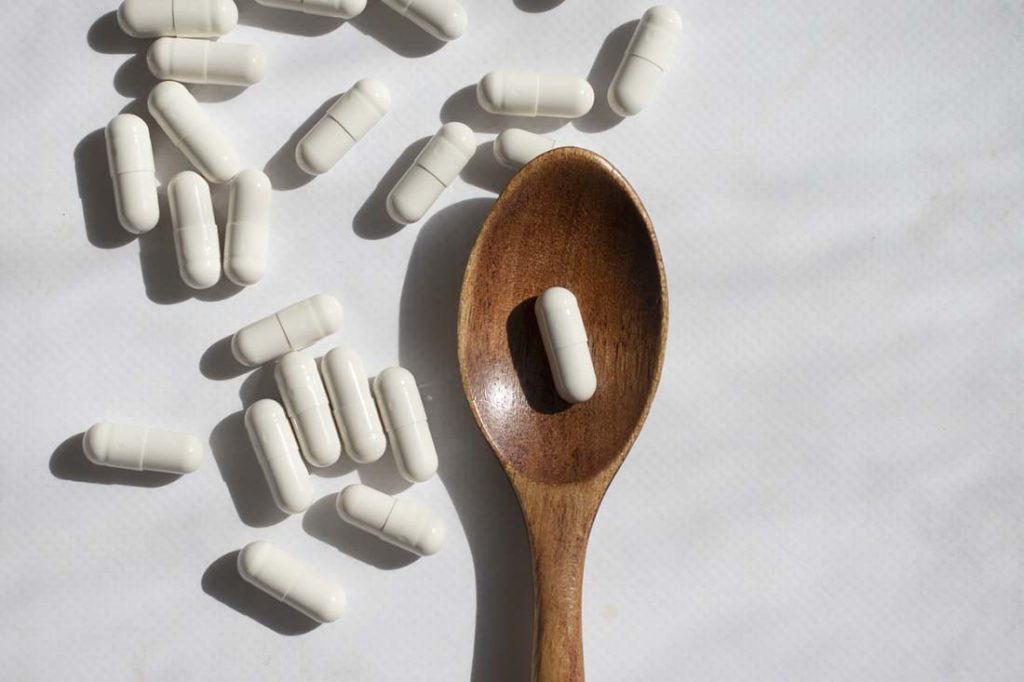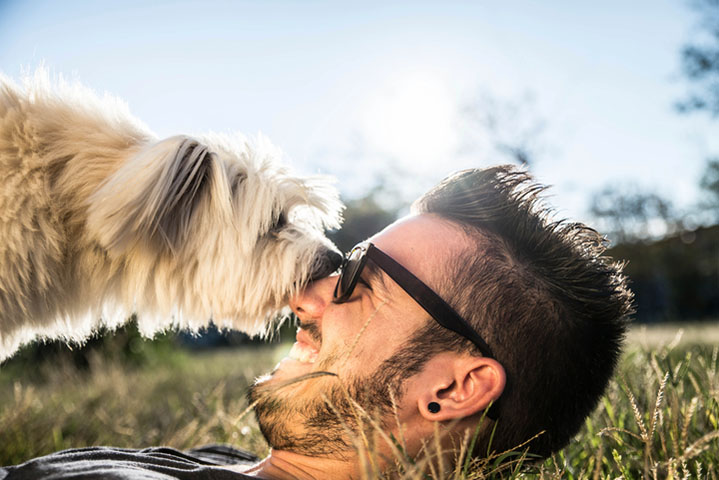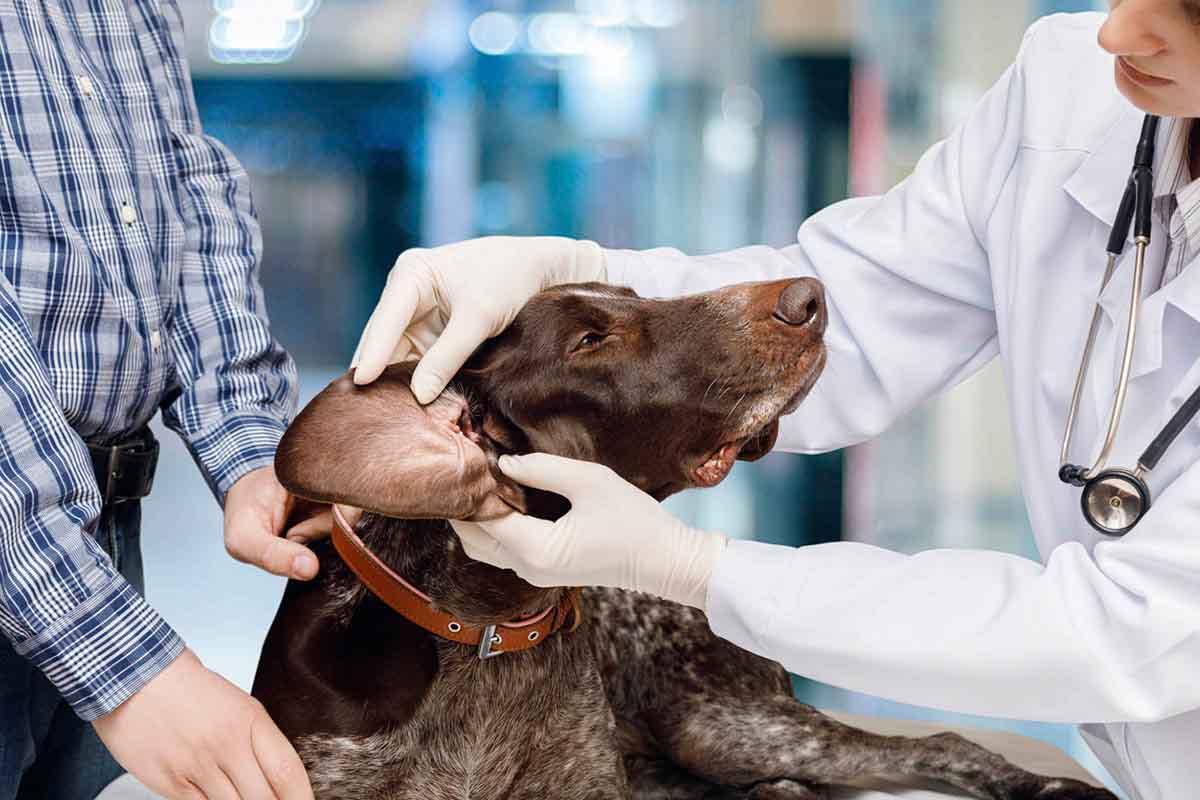The Dog Microbiome: How Probiotics and Gut Health Impact Your Dog’s Well-being
Are gut health products all hype, or is there something to them? And, do the potential benefits also apply to your dog?
You’ve probably heard the buzz about probiotics and gut health in human wellness. Grocery store shelves are packed with probiotic yogurts, fermented foods like kombucha, prebiotic sodas, and prebiotic additives. All promising better digestion, a stronger immune system, and a range of other health benefits. Are gut health products all hype, or is there something to them? And, do the potential benefits also apply to your dog?
The gut plays an important role in human and canine health. It hosts a diverse population of bacteria and other microbes collectively called the microbiome.
When the microbiome composition is unbalanced—whether from antimicrobials, stress, diet, or illness—digestive troubles, inflammation, and long-term health issues can develop.
So, how can you support a healthy fecal microbiome in your dog? Here’s what you should know about probiotics, prebiotics, and diet, and whether your pup could benefit from microbial support.
What is the gut microbiome and why does it matter?

A dog’s gut microbiota is a bustling ecosystem of microbes living in the gastrointestinal tract. These microorganisms help protect the intestinal barrier, break down food, produce vitamins, regulate the immune system, and even influence metabolism and mental health.
Although scientific studies are still trying to understand exactly how everything is connected, one thing is clear: dogs with healthy microbial communities have solid poops, strong immune systems, and fewer chronic health issues.
Dogs with a disrupted microbiome balance (i.e., dysbiosis) may have health issues like inflammatory bowel disease, allergies, obesity, or anxiety.
It’s important to recognize that we aren’t sure if these conditions cause the disruption, or if the disruption causes the conditions. Either way, modulation of the microbiome may help alleviate symptoms.
Researchers have used sequencing techniques to study how different bacterial species shift in dogs with certain diseases. They’ve found that shifts in key bacterial groups—like firmicutes, bacteroidetes, fusobacteria, actinobacteria, and proteobacteria—can indicate a dog’s risk for gut-related diseases.
Probiotics, prebiotics, and dietary fiber: How they support gut and overall health

Now that we know how important gut health is to canine health, we can focus on supporting it with probiotics, prebiotics, and fiber.
Probiotics
Probiotics are live, beneficial bacteria that help improve the microbial balance in the gut. Think of them as reinforcements for your dog’s natural gut army.
Certain strains—like Lactobacillus and Bifidobacterium have been shown to reduce digestive difficulties and inflammatory or immune-mediated conditions.
Probiotics can also increase the production of short-chain fatty acids (SCFAs) in the large intestine, which help feed the gut cells and keep the lining strong and healthy.
Prebiotics
Prebiotics provide a food source for probiotics. Supplementing with prebiotics can help probiotics do their work and help feed beneficial bacteria already present in the gut.
Prebiotics are specific types of indigestible carbohydrates naturally found in some vegetables, fruits, and dietary fibers. In one recent study, dogs fed a combination of prebiotics and probiotics had more beneficial Lactobacillus species, fewer harmful E. coli species, and less frequent diarrhea.
Dietary fiber
Fiber has many beneficial functions in the digestive tract, including:
- bulking up loose stools
- encouraging regular bowel movements
- acting as a prebiotic that feeds healthy gut microbes
Certain fibers undergo fermentation in the large intestine, leading to the production of SCFAs. Over time, diets with a mixture of fermentable and non-fermentable fibers have been shown to encourage microbial diversity, which helps support a more resilient, healthy pet.
How the microbiome affects dog health

Here’s a deeper look at how the microbiome can affect your dog’s health.
1. Gut health and digestion
A healthy gut microbiome means fewer tummy troubles. Research shows that dogs with inflammatory bowel disease (IBD), which is similar to Crohn’s disease or ulcerative colitis in people, often have an unbalanced microbiome dominated by too many inflammatory microbes. Supporting gut balance with probiotics and prebiotics may help manage chronic digestive issues.
2. Immune system function
About 70% of the immune system lives in the gut. That means a thriving gut microbiome may help your dog fight off infections, reduce inflammation, and recover from illness faster.
Probiotic supplementation has been linked to increased immune functions and fewer harmful gut pathogens.
3. Metabolism and weight management
Human studies suggest gut bacteria may play a role in metabolic health, weight loss, and fat storage patterns. Extrapolating this to dogs could explain why some pets have greater difficulty losing weight than others. Rebalancing the microbiome through dietary changes and probiotic supplementation may help dogs maintain a healthy weight.
4. Mental health and behavior
Research shows that the gut microbiome can affect mental health and anxiety disorders in people via several complex mechanisms. It’s reasonable to assume that dogs might also suffer from gut-related anxiety issues, or see an improvement in anxiety with probiotic supplementation. Some commercial probiotic manufacturers now produce supplements specifically designed for calming.
How dog food influences gut health

Fresh, whole-food diets may help support a dog’s gut microbiome. The processing required to produce kibble and the constraints of manufacturing a shelf-stable product means some dry dog foods may have fewer fiber types, nutrients, and prebiotics that allow healthy bacteria to flourish.
Fresh food is highly digestible, contains diverse fiber types, and is proven to increase the diversity of the gut microbiome.
How to choose the right probiotic for your dog
Probiotic supplementation can be helpful for dogs undergoing antibiotic therapy, suffering from acute or chronic gastrointestinal issues, or dealing with other health conditions like allergies and obesity. The right probiotic depends on your dog’s specific health needs and whether you’re using them for maintenance or to address an active problem.
Consult your veterinarian for specific advice, including which strains might best suit your dog’s needs.
In most cases, a dog-specific probiotic will work best. However, some pets can benefit from products designed for humans, mainly those made from Lactobacillus strains. Always check the label and look for high numbers of active cultures and prebiotic inclusions to augment results.
Fecal microbiota transplantation is another option for probiotic supplementation. The procedure involves transferring feces from healthy dogs to dogs suffering from chronic intestinal disease (e.g., enteropathy), or poor immune health. Your veterinarian can provide more information about this procedure, which can be accomplished using pills or enemas.
Supporting your dog’s gut health for a lifetime

Microbiome research in dogs, humans, and other species is still in its infancy. There is still much to discover. However, one thing is clear: gut health can influence disease, health, and well-being in our canine companions.
Incorporating probiotics, prebiotics, and dietary fiber into your dog’s routine—whether through supplements, fresh food, or a fecal transplant—can help you nurture a thriving gut microbiota. A healthy gut supports better poops, fewer health challenges, and a happier, healthier dog.
By Elizabeth Kowalski, CVT, FFCP
Citations
Suchodolski, Jan S. 2021. “Analysis of the Gut Microbiome in Dogs and Cats.” Veterinary Clinical Pathology, September. https://doi.org/10.1111/vcp.13031.
Plaza-Diaz, Julio, Francisco Javier Ruiz-Ojeda, Mercedes Gil-Campos, and Angel Gil. 2019. “Mechanisms of Action of Probiotics.” Advances in Nutrition 10 (1): S49–66. https://doi.org/10.1093/advances/nmy063.
Tanprasertsuk, Jirayu, Aashish R. Jha, Justin Shmalberg, Roshonda B. Jones, LeeAnn M. Perry, Heather Maughan, and Ryan W. Honaker. 2021. “The Microbiota of Healthy Dogs Demonstrates Individualized Responses to Synbiotic Supplementation in a Randomized Controlled Trial.” Animal Microbiome 3 (May). https://doi.org/10.1186/s42523-021-00098-0.
“Diets to Boost Immunity.” 2022. Cornell University College of Veterinary Medicine. September 30, 2022. https://www.vet.cornell.edu/departments-centers-and-institutes/riney-canine-health-center/canine-health-information/diets-boost-immunity.
Yang, Qing, and Zhenlong Wu. 2023. “Gut Probiotics and Health of Dogs and Cats: Benefits, Applications, and Underlying Mechanisms.” Microorganisms 11 (10): 2452–52. https://doi.org/10.3390/microorganisms11102452.
Geary, Elizabeth L, Patrícia M Oba, Catherine C Applegate, Lindsay V Clark, Christopher J Fields, and Kelly S Swanson. 2022. “Effects of a Mildly Cooked Human-Grade Dog Diet on Gene Expression, Skin and Coat Health Measures, and Fecal Microbiota of Healthy Adult Dogs.” Journal of Animal Science 100 (10). https://doi.org/10.1093/jas/skac265.
Sacoor, Carina, John D. Marugg, Nuno R. Lima, Nuno Empadinhas, and Liliana Montezinho. 2024. “Gut-Brain Axis Impact on Canine Anxiety Disorders: New Challenges for Behavioral Veterinary Medicine.” Veterinary Medicine International 2024 (January): e2856759. https://doi.org/10.1155/2024/2856759.
Davis, Cindy D. 2016. “The Gut Microbiome and Its Role in Obesity.” Nutrition Today 51 (4): 167–74. https://doi.org/10.1097/nt.0000000000000167.
“Diets to Boost Immunity.” 2022. Cornell University College of Veterinary Medicine. September 30, 2022. https://www.vet.cornell.edu/departments-centers-and-institutes/riney-canine-health-center/canine-health-information/diets-boost-immunity.
This content is for informational use only and does not replace professional nutrition and/or medical advice, diagnosis, or treatment. It is not a substitute for and should not be relied upon for specific nutrition and/or medical recommendations. Please talk with your veterinarian about any questions or concerns.





.jpg)


